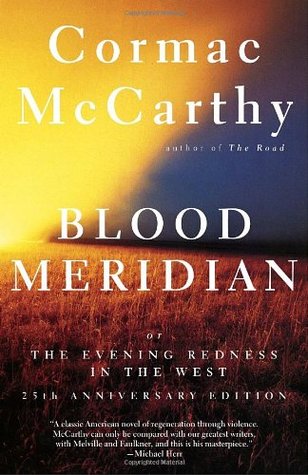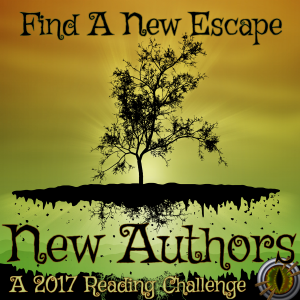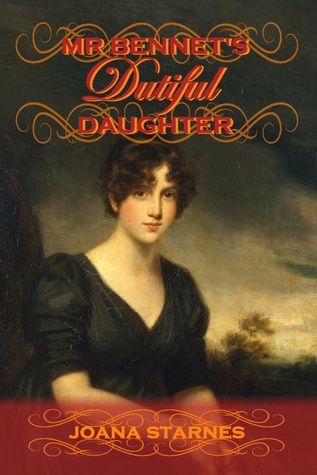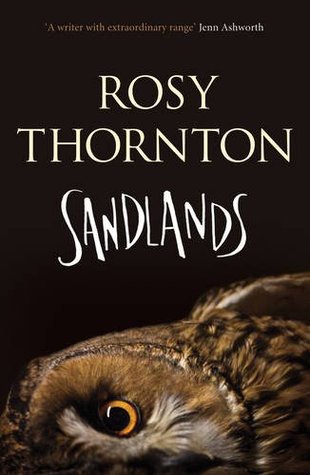
Paperback, 337 pgs.
I am an Amazon Affiliate
Blood Meridian, or the Evening Redness in the West by Cormac McCarthy, which was the January book club selection, is based on historical events along the Texas-Mexico border in the 1850s involving the Glanton Gang that scalped many, engaged in mercenary acts, and sought their fortunes. Led by John Glanton, who fought for Texas independence during the Mexican-American War, the gang murdered Indians and Mexicans alike. Readers should expect this book to be brutal and violent. There is no way around it with this subject matter, and much of the violence has little to no purpose other than to garner wealth and property for the gang members.
“The judge watched him. He began to point out various men in the room and to ask if these men were here for a good time or if inded they knew why they were here at all.
Everybody dont have to have a reason to be someplace.
That’s so, said the judge. They do not have to have a reason. But order is not set aside because of their indifference.” (pg. 341-2)
The kid is the main protagonist here, and he stumbles into the gang after wandering for some time. Readers will not view him as a hero, and in many ways he is an anti-hero because he is morally ambiguous like many characters in westerns. The focus on the bloodshed and the meanderings of this gang through the desert and mountains is a surface reading of the novel, the central character and theme is related to “God”, “destiny,” and the order of the universe, which the judge clearly says encompasses more than can be understood by the human mind. Some mysteries are perpetual, but he reminds us to never forget that there is an order and a reason behind even the most chaotic and mundane events.
Like the kid, the readers is forced into a world where violence is the norm and it just is, without any moments of morality or kindness present. In this world, how can the kid strive to understand a wider picture, learn to review his role in that violence, and come to any other conclusion than human kind is animal-like in its brutality?
While there are allusions to Christian traditions, such as the burning bush, there seems to be a subtext about relying too heavily on the stories/tales of “leaders” — whether they are religious or otherwise — because they oftentimes are lies (like the early tales told by the judge). The judge even keeps a ledger, which makes readers reflect on who is keeping that ledger and why? Is it God, Satan, or someone else, and does it really matter who? Moreover, the final scenes of the book call to mind Shiva’s Tandava, a violent and dangerous dance related to the destruction of the world in order for creation to flourish. It seems McCarthy is using a mesh of myths and religions to bring his points across about the violent birth of America.
The narrative is distant on purpose, but following the kid throughout gets difficult, and the number of bloody events could have been pared down significantly to demonstrate the points the author wanted to bring across. The strongest character in the novel is not the antihero but the judge, his antagonist. Blood Meridian, or the Evening Redness in the West by Cormac McCarthy could have been a much stronger novel with some editing.
Book Club Discussion:
As I was more than halfway through this one, I attended the discussion and planned to finish it after the meeting. Many liked the book well enough, though some said the narrative had their eyes/brains glazing over if read too quickly. Others found a bunch of theories to postulate on, including one where the Judge Holden appeared to be Satan or Satan-like because he was very good at a great many things.
Upon further discussion and review, it seems as though McCarthy took a lot of his events from those in My Confession by Samuel Chamberlain, who claimed to be a member of the Glanton Gang. Some scholars have said that the Kid in McCarthy’s book could be Chamberlain. Judge Holden is supposed to be a historical figure, but the only references to him are in Chamberlain’s book.
RATING: Tercet
Other Reviews:
About the Author:
Cormac McCarthy is an American novelist and playwright. He has written ten novels in the Southern Gothic, western, and post-apocalyptic genres and has also written plays and screenplays. He received the Pulitzer Prize in 2007 for The Road, and his 2005 novel No Country for Old Men was adapted as a 2007 film of the same name, which won four Academy Awards, including Best Picture.
His earlier Blood Meridian (1985) was among Time Magazine’s poll of 100 best English-language books published between 1925 and 2005 and he placed joint runner-up for a similar title in a poll taken in 2006 by The New York Times of the best American fiction published in the last 25 years. Literary critic Harold Bloom named him as one of the four major American novelists of his time, along with Thomas Pynchon, Don DeLillo, and Philip Roth. He is frequently compared by modern reviewers to William Faulkner.
In 2009, Cormac McCarthy won the PEN/Saul Bellow Award, a lifetime achievement award given by the PEN American Center.







 About the Author:
About the Author:





